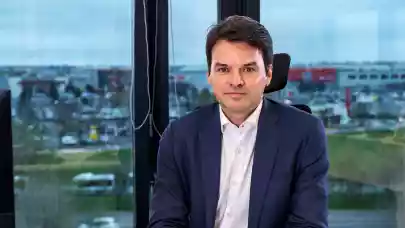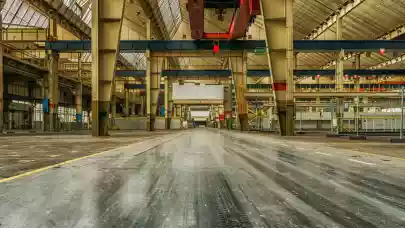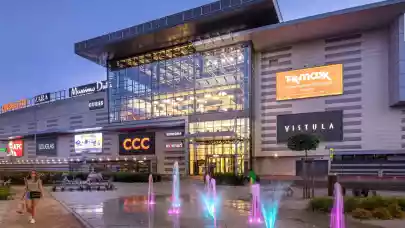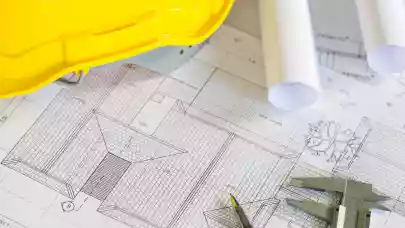
Didier Balcaen, CEO and Co-Founder of SPEEDWELL, talked to Property Forum about the company’s strong development pipeline in Romania and the trends shaping the local residential and commercial real estate market.
This interview was first published in Property Forum’s annual listing of "The 50 most influential people in Romania’s real estate market”.
What are your key development milestones and delivery targets in 2025?
2025 is shaping up to be a milestone year for SPEEDWELL. We have started construction of the first 50 villas at Glenwood Estate near Bucharest. The first phase of townhouses at The Meadows will also be finalized, offering residents a low-density lifestyle just minutes from the city. 3 Construction will kick off at QUEENS District in northern Bucharest, our flagship mixed-use project featuring 23,000 sqm of zero-carbon office space, 237 residential units, and 2,500 sqm of retail.
We are also starting the next phase of THE IVY (building C8), preparing the TINO residential project in Braşov, and progressing with the redevelopment of the 1 IUNIE S.A. industrial site in Timişoara into a new mixed-use concept. After fully leasing SPACEPLUS Chitila, we will launch our second logistics hub in Popeşti-Leordeni, and we are actively scouting regional cities for further opportunities.
What trends will define real estate demand and investment in 2025?
In residential, the demand for energy-efficient homes continues to accelerate. Buyers want real value, such as individual heat pumps and photovoltaics, which we've integrated into projects like The Meadows, Glenwood Estate, and QUEENS District. At the same time, we expect the rental market to grow, as mid-and lower-income buyers are increasingly priced out of ownership.
In the office sector, macro-level pressures—high interest rates, inflation, and geopolitical uncertainty—are driving selectivity but also creating space for quality assets with long-term upside. Tenants are enforcing more hybrid policies but with a renewed emphasis on in-office collaboration.
Cost-efficiency is a major differentiator: beyond rent levels, service charges are now under scrutiny, and smart, sustainable buildings are pulling ahead. Our QUEENS District office component reflects all of this: zero-carbon design, energy savings, smart tech, and flexibility that responds to current hybrid realities.
In industrial and logistics, demand remains strong. What's changing is how tenants approach their space needs; they want flexibility, cost-efficiency, and operational readiness.
Speculative development is slowing, and we are seeing a clear preference shift toward pre-leases and build-to-suit options, which are easier to finance and more resilient in uncertain times. That's exactly the gap SPACEPLUS is filling—customized, modular logistics for SMEs, with built-in scalability and quality.
How are you shaping SPEEDWELL's leasing strategy?
Location remains king. That's why we chose the plot for QUEENS Office so carefully—just 10 minutes' walk from both a metro station and one of Bucharest's largest malls. It's about creating the right urban context, not just a standalone building.
We're also placing increasing emphasis on sustainability as a performance driver—not just for the sake of certification, but for how it reflects in actual operational costs.
Tenants are more cost-sensitive, and OPEX matters. We aim for BREEAM Excellent or its equivalent, but what we care about even more is energy efficiency, low-carbon materials, and smart systems integrated from day one. Also, we are building frameworks that allow for shared tracking of energy, water, and waste metrics, encouraging collaboration between landlord and tenant on sustainability goals. Features like EV charging, bike storage, green spaces, and active lifestyle amenities are now part of the basic expectation—and we're delivering on all fronts.
How are you strengthening ESG, and what impact do you foresee this having on tenant demand and investor interest?
ESG is not something we are catching up to—it's something we've embedded from the start.
We aim to reach full carbon neutrality across our projects by 2050. Our design strategy aligns with the EU Taxonomy and the Paris Agreement, meaning we go beyond current NZEB legislation by at least 10% and keep buildings below the CRREM emissions curve for their entire lifespan.
We're rethinking resource use too—on brownfield sites, we reuse materials wherever feasible. Biodiversity and climate risk assessments are now part of the early design phase.
On the social side, we engage with communities through development plans, stakeholder outreach, and demographic studies. Transit-Oriented Development is a priority because accessible, livable communities are the foundation of social sustainability. And governance matters just as much. We've implemented a strong Code of Ethics and commit to transparency in everything from permitting to ESG reporting.
What drives mixed-use success, and how does SPEEDWELL lead?
These developments reduce commute times, ease pressure on transit, and create more vibrant, resilient communities. In a city like Bucharest, where traffic and urban sprawl are real challenges, we're offering a better alternative: compact, connected, curated environments.
From an investment standpoint, mixed-use developments are future-proof. They're adaptable, diversified, and more resistant to market volatility. It's why we believed in them early on—projects like Record Park and PALTIM were already reflecting these principles years ago.
Now, with CityZen, we're taking things to the next level: an 11-hectare brownfield regeneration project in central Bucharest, which we've designed around green infrastructure, mixed uses, and public space. It's awaiting approvals but is already set to become the first BREEAM Communities-certified development in Romania.
What's your strategy for future-ready office spaces?
Our office strategy is grounded in functionality with purpose. It's about giving companies the tools to operate better, retain talent, and reduce costs. We design for performance—natural light, excellent air quality, acoustic comfort, and access to green spaces are all non-negotiable.
Add to that healthy food options and open-air environments, and you create spaces that genuinely support wellbeing. On the operational side, we're investing in smart digital platforms to simplify building use—from access control to facility management and real-time energy monitoring. It's about creating a seamless, efficient experience for tenants and their employees.
Finally, our floorplates are modular and hybrid-ready. Companies need the ability to flex as their teams and working models evolve. Whether it's full occupancy, hybrid models, or flexible desks, we design to support that evolution, not limit it. Projects like MIRO, Record Park, and QUEENS District reflect all these principles.



